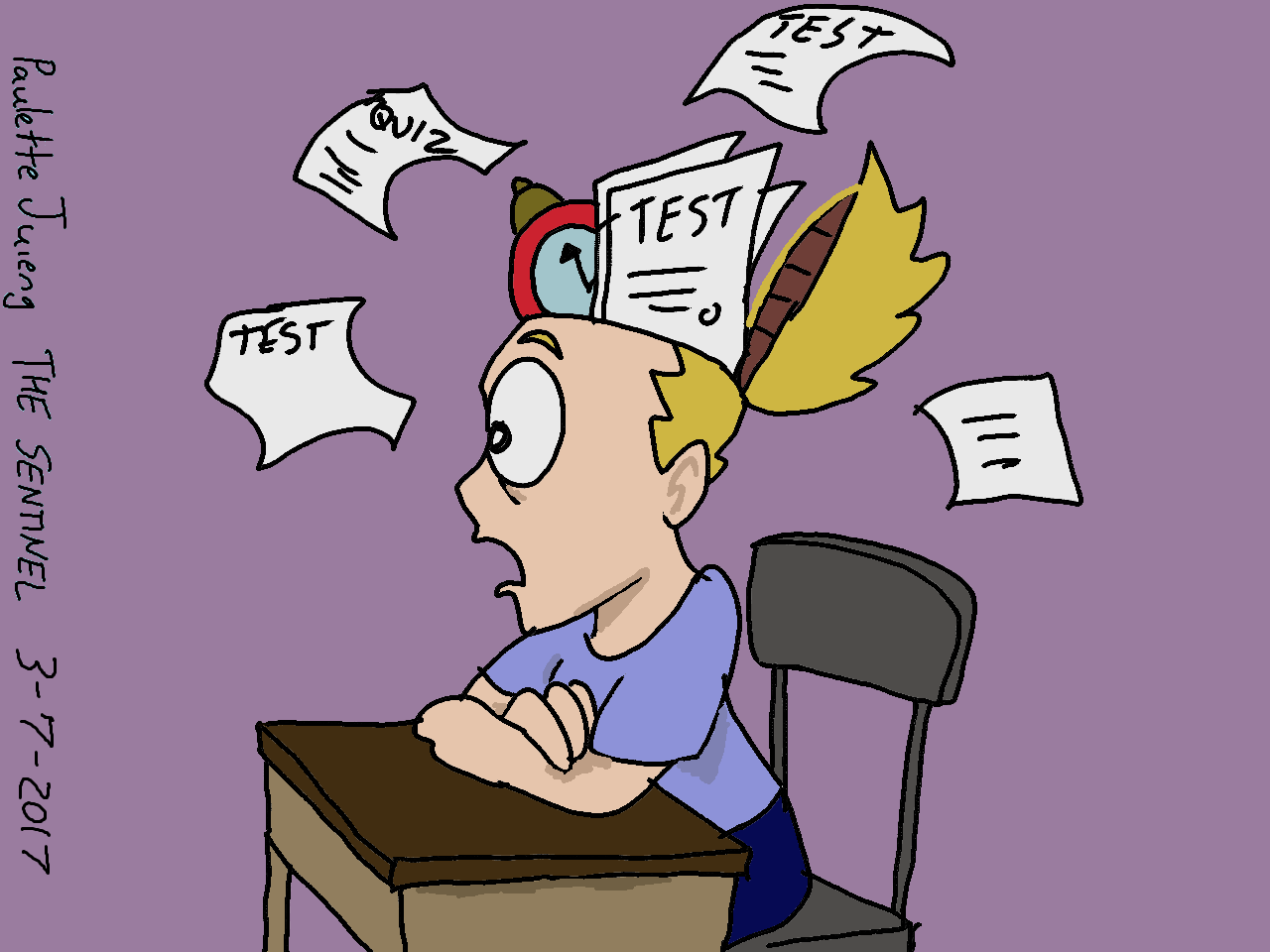Test grades are neither an accurate representation of a student’s education nor are they the best way for every student to learn.
With midterms coming up, stress levels are high throughout the student body. As college students, we have figured out by now the best way that we learn individually. Some students need to work with their hands and create something, like a project or a research study. Some enjoy working in a group or on a team, teaching and learning from their peers.
Many classes, however, only offer tests as a representation of how well students have learned class material, without giving them the opportunity to use the knowledge in practical applications. The result is often failing grades being awarded to students who are passionate about learning but absorb knowledge in different ways than their peers.
Making matters worse, a large percentage of students who don’t test well suffer from high test anxiety, a diagnosable condition which the American Test Anxieties Association says affects about 16-20 percent of students and moderately affects an additional 18 percent.
Symptoms of test anxiety — including sweaty palms, increased heart rate and difficulty focusing — can be very distracting for students in the middle of a test and may be a sign of attention deficit hyperactivity disorder. Studies by the Centers for Disease Control and Prevention say that 11 percent of adolescents suffer from ADHD, which can continue to affect students well into their college career.
Problems with attention and anxiety can make a student’s life even more difficult when they are expected to regurgitate information from just one of several classes, each of which is expecting the same thing from them.
Midterms, finals and quarterly tests tend to fall around the same time for all classes every semester, so students often have to deal with one highly stressful week of test-taking and preparation. Weeks without tests are spent tirelessly studying, reading chapters and re-reading chapters again to reduce the risk of falling behind for the next test.
Even after cramming for a test, it’s likely that all the information will be lost after taking the test anyway. One person can only keep so much information in their head at the same time before they need to focus on other things. Are students really learning anything from classes that place so much emphasis on tests and grades?
Are they really learning the material, or are they just learning how to take tests?
In a world of growing technology, including the rapid use of powerful search engines and internet tools, students shouldn’t need to memorize facts anymore. Regardless, it’s hard to say how useful test grades are as a measurement of education. Studies of student activity at American universities show that higher percentages of students every year are more likely to cheat on tests anyway.
Instead of learning lists of names, dates, theories and other facts related to course material, students should be offered more opportunities for practical application of that knowledge. They should be encouraged to study aspects of a field which interest them and allowed to report on or create something out of that information which they can be proud of.
Test grades are an antiquated method to determine the value of a student’s education, but those with test anxiety and different educational strengths are forced to endure the current system until a better one can be implemented
Kennesaw State University offers advice for dealing with test anxiety, as well as programs in which students can enroll to assist with diagnosed anxiety and psychological disorders.



